‘It Is Hard to Imagine High-Level Interpretation Being Entrusted to a Machine’
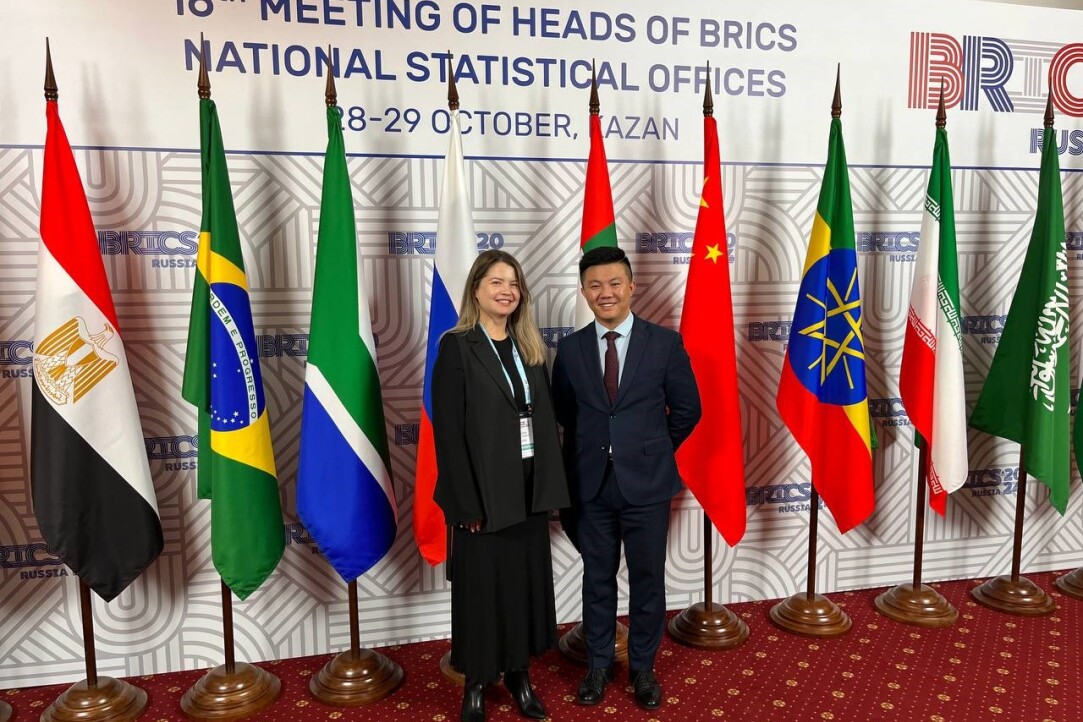
In 2024, Russia chairs BRICS, an international organisation comprising nine countries. Throughout the year, dozens of forums, working group meetings, and BRICS sessions took place across various Russian cities. As an interpreter, Ksenia Prosyukova, Associate Professor at the HSE School of Foreign Languages and Candidate of Science (PhD) in Pedagogy, participated in several BRICS events. In an interview, she discussed the personal responsibility of working at high-level events, the challenges and prospects of her profession, and how HSE University trains in-demand translators.
Ksenia Prosyukova interpreted at several BRICS events, including the 5th Meeting of the BRICS Ministers for Disaster Management , the Digital and Literature Forums, the 16th Meeting of Heads of BRICS National Statistical Offices, and the session of the BRICS Youth Council. At the key event of the presidency—the 16th BRICS Summit held from October 22 to 24 in Kazan—Ksenia Prosyukova interpreted bilateral negotiations with the Ethiopian delegation at the ministerial level.

— How can a professional interpreter join events of this level?
— Undoubtedly, such events require interpreters with extensive experience. Typically, job offers for international events either come directly from the organisers, provided you have worked with them before, or through colleagues who recommend you. For those aspiring to participate in international events, it is essential to actively collaborate with major agencies and translation companies and maintain connections with colleagues and industry representatives.
For instance, attending events like the Translation Forum Russia and joining professional translator associations are excellent for networking.
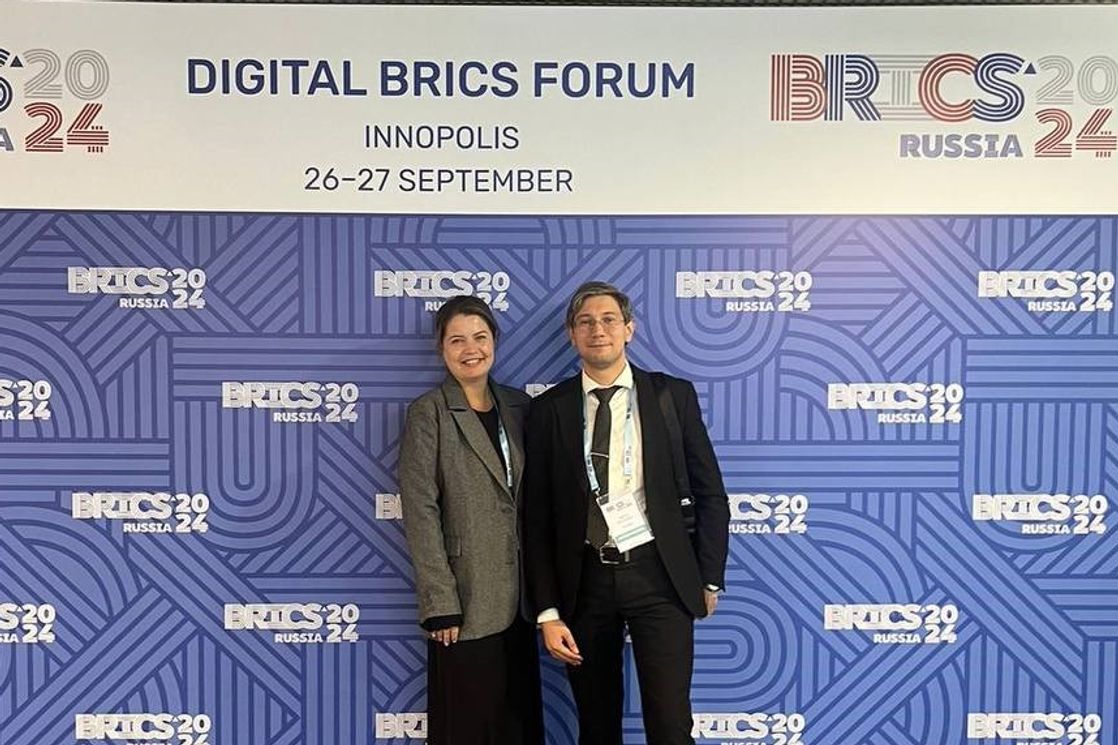
— Did you work as a simultaneous or consecutive interpreter at the BRICS Summit?
— I worked as an oral interpreter, adapting to the event format. This included both simultaneous and consecutive interpretation. All the main sessions and negotiations were interpreted simultaneously, but between sessions, it was also necessary to interpret press briefings, toasts, and congratulations at official receptions, as well as excursions as part of the cultural programme. All of this involved consecutive interpretation or whispered interpretation (chuchotage—a type of oral interpretation where the interpreter translates in real-time for 1–2 guests nearby, rather than from a booth). However, there was, of course, much more classical simultaneous interpretation.

— What was your workday like at the BRICS Summit?
— A interpreter’s day at an international event is scheduled minute by minute, starting early in the morning and ending late in the evening.
You need to arrive at the venue 30 minutes before the first event and be in the booth 15 minutes before it starts. In practice, interpreters aim to arrive even earlier to clear security, meet colleagues from other booths and the technical team, ensure the equipment works properly, review the participant list, and get into the right mindset.
During the event, two interpreters alternate in each booth every 20–30 minutes. There is no fixed rule for rotation; interpreters decide who starts and the timing of shifts themselves.
— How do you prepare for interpretation? Are there any support materials in the booth?
— Usually, there is an up-to-date printed programme, often bilingual, by the time the event begins. This helps correctly pronounce participant names, titles, and organisations they represent.

Each interpreter has their own preparation approach. I try to find publicly available information about the speakers. For annual events, I review materials and recordings from previous years.
— Is interpreting a promising career? Could professionals be replaced by AI in the future?
— Now it is hard to say clearly how AI will impact the interpreting profession.
When it comes to oral translation, it is hard to imagine high-level interpretation being entrusted to a machine. An interpreter is personally responsible for the quality of translation. History has shown many instances where inaccurate translation caused diplomatic misunderstandings and even tragedies.
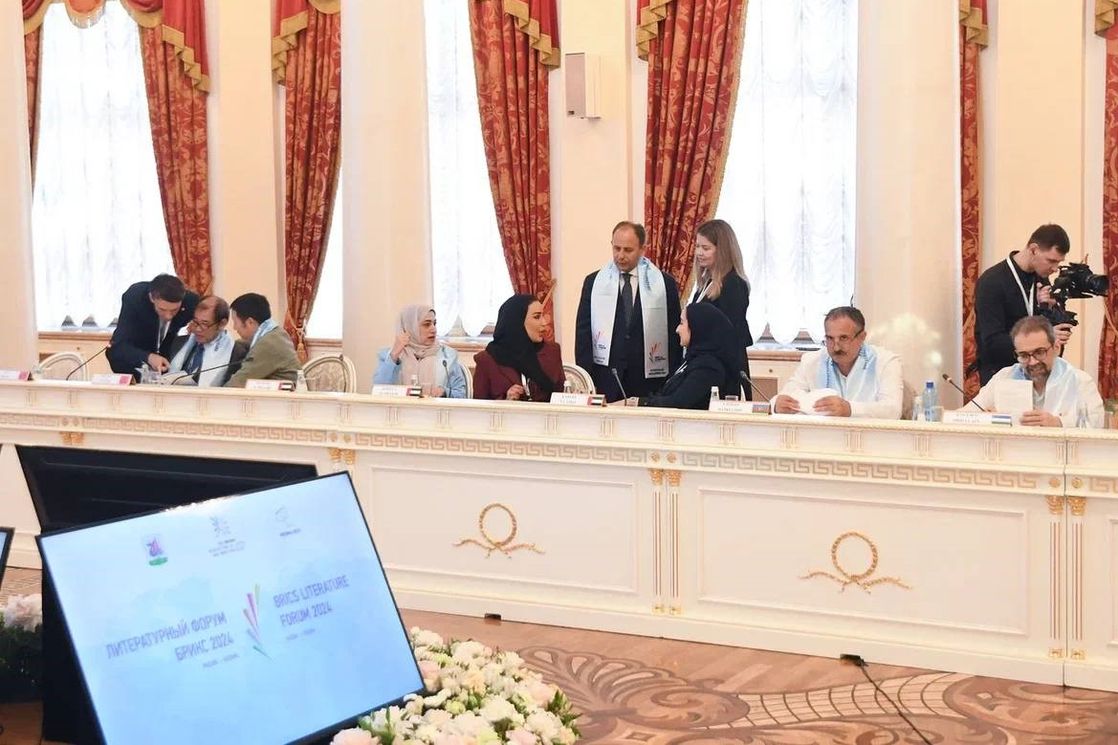
Interpreters must account for extralinguistic factors, situational context, and non-verbal cues. I do not think technology can fully replicate this.
That said, like many other professions predicted to face obsolescence, AI already handles simple tasks well in translation. For example, attending international exhibitions no longer requires an interpreter; a smartphone app can easily do this job.
I believe that one thing is certain: the translation market will become more competitive, and aspiring translators must be prepared for this.
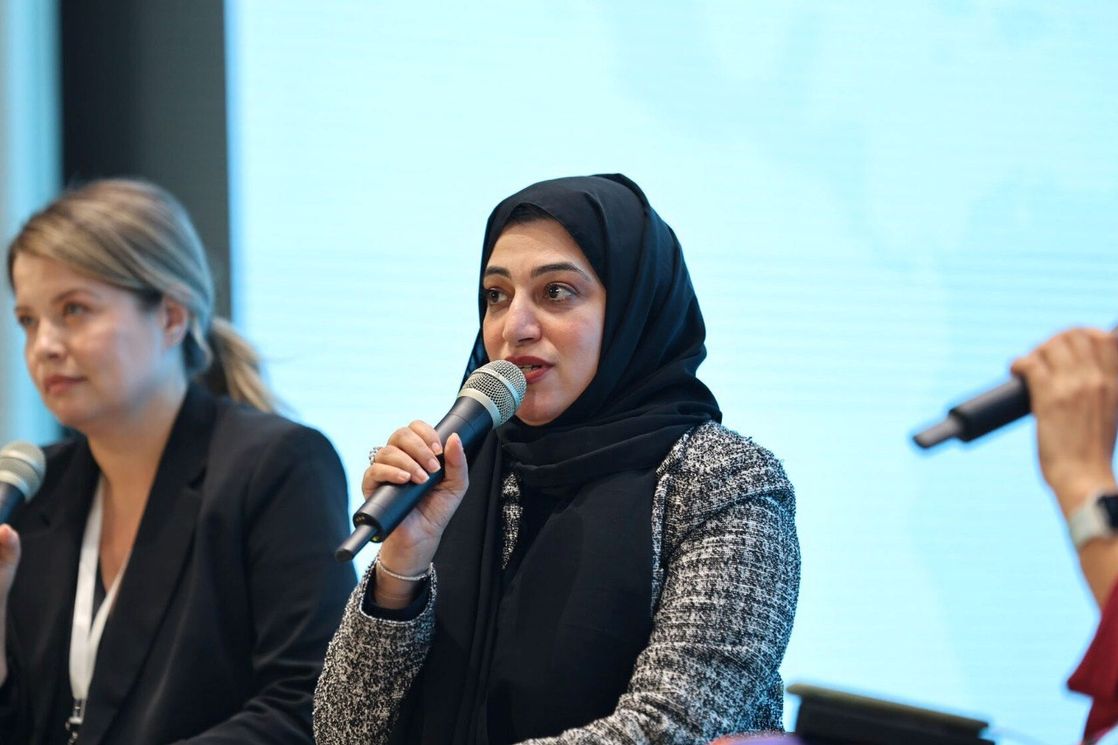
— Tell us about your career path and the languages you speak.
— I have always been drawn to foreign languages. At elementary school, I wanted to be a diplomat, but by high school, I was set on studying foreign languages.
I started learning English at the age of four, Arabic and Spanish at university, and then studied French and Italian.
I did an internship at Cairo University, Tishreen University in Latakia (Syria), and the University of Granada (Spain). After graduating from my alma mater, Kazan University, I spent a year at the Higher Language Institute of Damascus University. And as a teacher of translation I also trained at Abdelmalek Essaâdi University (Morocco) as well as at the Centre of Foreign Languages in London and Oxford.
My first job was as a translator for Kazan Helicopters, which involved long business trips. After spending six months in Sudan and Thailand each, I sought more variety. So, I started doing different oral translation projects.
Now, I have enough command of Italian and French to talk with native speakers on common things. I use English, Arabic and Spanish professionally, but only interpret simultaneously with English.
— Are there differences in language-learning approaches in Russia and abroad?
— The methodology of language teaching in the countries where I studied and interned varies greatly.
The languages I studied during internships are structurally diverse; each of them requires its own specific approach. I would say that in the East, more attention is paid to culture—music, literature, and history—as factors that help better understand how the language developed and the stages it went through in its formation. In the United Kingdom, I underwent training for English language teachers, so the focus there was on teaching methodology. An invaluable aspect was the exchange of professional experience, which is unique for each of us. We mainly worked on case studies and were then assigned project tasks—teaching a lesson on a given topic or solving a specific problem. These methods are now also actively applied in Russia when preparing teachers.
— What subjects do you teach at the HSE School of Foreign Languages?
— I teach four courses in the master’s programme (‘Theory and Practice of Oral and Written Translation,’ ‘Scientific and Technical Translation,’ ‘Specialised Translation,’ and ‘Simultaneous Interpretation’) and two courses in the bachelor’s programme (‘Specialised Translation’ and ‘Systemic Relations in the Vocabulary of Russian and English’). The key distinguishing feature of the bachelor’s and master's programmes in Foreign Languages and Intercultural Communication is their practical orientation. In addition to a wide range of elective courses, there are several types of internships where students work on specific tasks in real companies, and their supervisors are employees of these companies. This provides an invaluable hands-on experience, far beyond a simulated work process.
— How can aspiring translators polish their skills and gain experience to start their careers?
— The most important thing to remember is that translation is a skill, not knowledge. You can read hundreds of articles on how to become a translator, but without practice, it will only be a set of useless facts. The rule is simple: if you want to become a translator, you need to translate—analyse material independently, intern at companies, and volunteer at events.
— How can one find their calling?
— Do not be afraid to try new things. It is essential to listen to yourself and stop if you feel that the chosen path is not yours. It can be challenging to push yourself to take risks. I experienced something similar myself when, after many years of working as a consecutive interpreter, I decided to try simultaneous interpretation. At the time, it seemed like simultaneous interpretation was for the elite, and I thought I would never succeed in it. The key is to analyse and understand what exactly you lack to take the first step—whether it is knowledge or skills. By identifying your weaknesses, you can determine where to move next.
This becomes your strategy for achieving your goal, which needs to be refined at every new stage of professional development. It is important to keep reminding yourself that a person who finds their calling is truly a happy person.
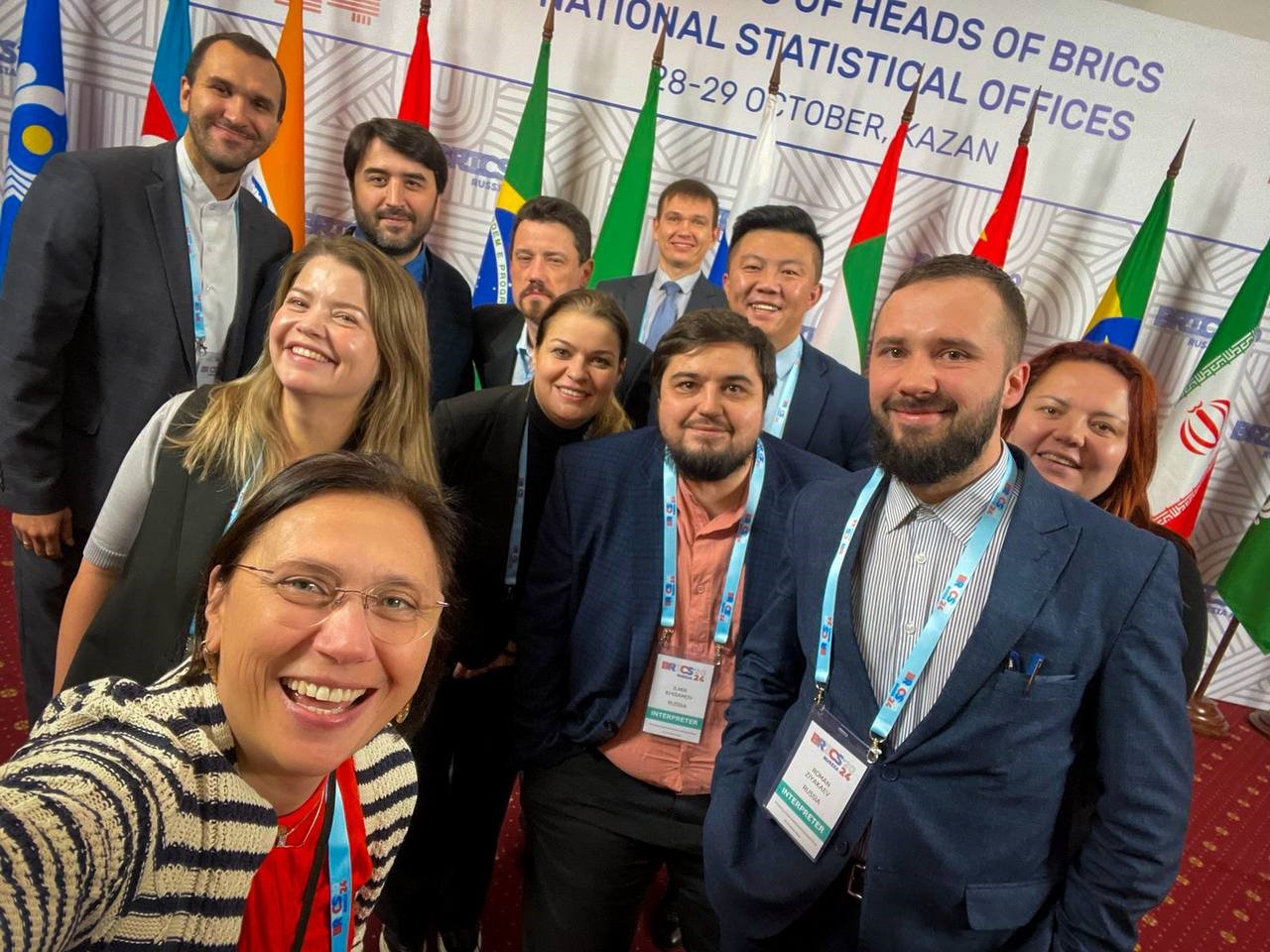
On November 24, 2024, the Open Day for the Master’s Programme 'Foreign Languages and Intercultural Communication' will take place.
See also:
The Future Through the Eyes of Young Scientists
A delegation of teachers and students from the HSE Campus in Nizhny Novgorod participated in the IV Young Scientists Congress and the IX BRICS Young Scientists Forum held in Sochi. These two key events of the Russian Decade of Science and Technology brought together representatives of the academic and university community, state corporations, private businesses, and public organisations to envision the future of Russian science through the lens of the younger generation.
‘We Need Our Own AI Models Trained on Local Data’
The digitalisation of the economy and the rapid development of artificial intelligence (AI) technologies pose new challenges for antitrust authorities worldwide. Major players in the AI market, equipped with significant resources, can block new entrants and set anti-competitive prices. Additionally, the use of AI raises increasingly complex ethical questions for which the global community has yet to develop answers. These and other issues were discussed at the Third BRICS+ Digital Competition Forum.
BRICS Representatives Discuss the Development of Statistics in Member Countries
The significance of statistics in today’s digital age has reached a new level. Many decisions at government and business levels are based on data analysis. However, there is a mixed perception of official statistics, which negatively affects trust in public policies. The heads of BRICS statistical agencies discussed this issue and ways to address it at a forum in Kazan, where a representative from HSE University also participated in the event.
‘Geographical Distance No Longer a Problem’: ISSEK Fosters Cooperation with Think Tanks in BRICS Countries
In September, the HSE Institute for Statistical Studies and Economics of Knowledge hosted an international working meeting with representatives from Brazilian, Egyptian, and Indian think tanks. The participants discussed opportunities for cooperation, including joint surveys, comparative studies, databases, and publications on foresight, technology, and innovation. It was also decided to draft a multilateral agreement to establish the BRICS Foresight Association.
HSE Experts Take Part in the First International Workshop on Technological Sustainability of BRICS
On September 19–20, Skoltech hosted the First International Workshop on Technological Sustainability of BRICS: University-Industry Partnerships, organised jointly with HSE University Human Capital Multidisciplinary Research Center. The meeting was held as part of the BRICS working group on technology foresight and science and technology studies.
HSE Researchers to Develop BRICS Exchange System Together with Chinese Experts
HSE University International BRICS Competition Law and Policy Centre and the Competition Policy and Assessment Centre founded by the State Administration for Market Regulation of China signed a cooperation agreement. The parties agreed to come up with proposals for the development of exchange trade in goods and raw materials between Russia, China, and the BRICS countries.
‘What Makes BRICS Effective Is Its Diversity’: HSE University Representatives Begin Work at EEF
HSE University Vice Rector Victoria Panova spoke at the Eastern Economic Forum (EEF 2024) that began in Vladivostok. The topic of her speech was the expansion of BRICS.
'Staying Open to New Challenges and Opportunities Is Crucial'
The Tenth BRICS Youth Summit was held in Ulyanovsk from July 22 to 26. The event was attended by more than 200 early-career professionals from Brazil, India, China, Egypt, Iran, the United Arab Emirates, Saudi Arabia, Ethiopia, South Africa, and Russian regions. Participants gathered to discuss current global issues and explore opportunities for youth collaboration. Students of HSE University who attended the Youth Summit shared their impressions with HSE University Life.
HSE University Launches Consortium of BRICS Law Schools
The HSE Faculty of Law hosted an online meeting with law schools and expert centres from BRICS countries. The purpose of the event was to join efforts to advance legal science and practice for the benefit of the organization. To this end, at the initiative of the Dean of the Faculty of Law Vadim Vinogradov, a Consortium of BRICS Law Schools was established, comprising representatives of leading higher education institutions from a number of countries.
‘At HSE University I Had the Opportunity to Meet the Best Academics’
In April 2024, HSE School of International Regional Studies of the Faculty of World Economy and International Affairs organised a round table ‘Russia and the Most Influential Countries of the Global South: Comparing Approaches to the New International Political and Economic-Financial Order’. Seyedmohammad Seyedi Asl, Research Fellow at the School of International Regional Studies, spoke to HSE News Service on his report ‘Global South, BRICS, and Iran's Foreign Policy’ presented at the round table, his research interests and impressions of working at HSE University, and living in Moscow.


